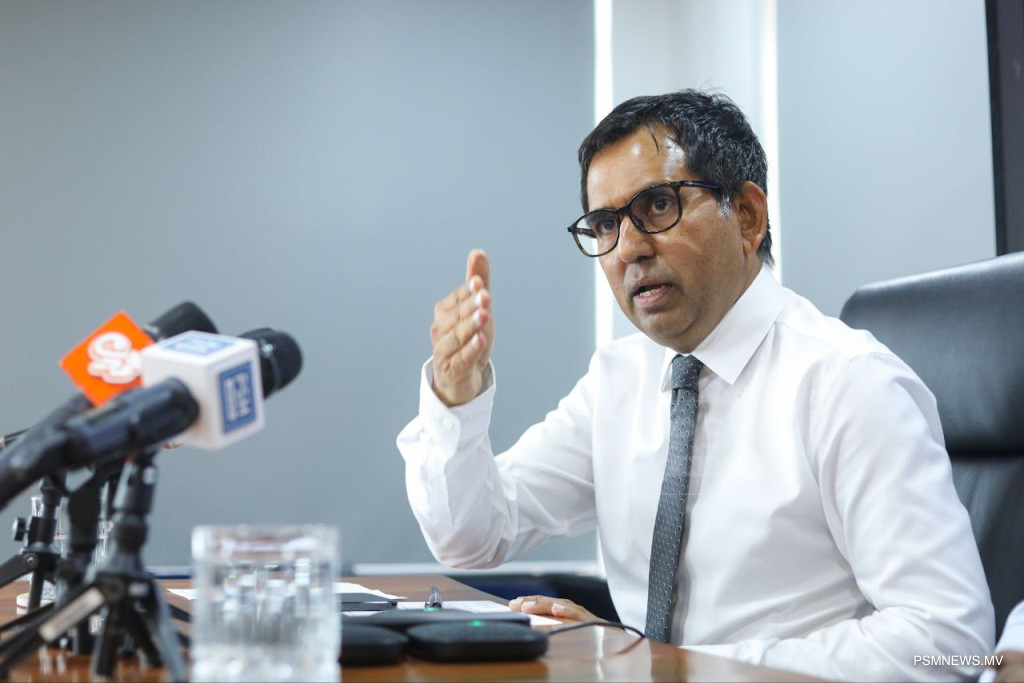
The government has sharply increased the supply of US dollars to businesses at the official exchange rate, aiming to stabilise consumer prices and relieve pressure on household budgets, according to Minister of Economic Development and Trade Mohamed Saeed. This announcement comes amid rising public concern over inflation and allegations of foreign currency shortages affecting importers.
Businesses are now receiving up to 50 percent of their requested dollar allocations at the fixed rate, Minister Saeed said, a notable rise from the 5 to 10 percent previously granted to small and medium-sized enterprises by the Bank of Maldives (BML) prior to President Dr Mohamed Muizzu’s administration.
Minister Saeed disclosed the figures during a press briefing focused on food security and affordability. The government’s decision to intervene, he said, was prompted by reports of uncontrolled price increases on commonly consumed goods.
To counter this trend, the Cabinet directed the State Trading Organisation (STO) to undertake bulk imports of essential staples, including rice, sugar, and flour. The organisation has also been tasked with importing the ten most frequently consumed fruits and vegetables, along with lentils, eggs, and potatoes. Officials say the initiative is designed to ensure a steady supply of key goods at reasonable prices.
Minister Saeed addressed allegations that difficulty in obtaining dollars was driving recent price hikes, specifically for apples and oranges. He rejected the claims, citing the increased dollar allocation. “When addressing these two issues, it is indeed difficult to comprehend why prices of apples and oranges would increase by 300 or 400 percent, particularly when that is presented as a justification,” he said.
Implementation of the directive is already underway. The STO began selling oranges in the market last week and has pledged continuous availability of both oranges and apples starting next week. From 15 October, the organisation is expected to begin importing 23 designated essential food items for public distribution.
Shimad Ibrahim, Managing Director of STO, clarified the financial structure supporting the organisation’s import operations. He stated that STO had not relied on government-provided dollars during the past two Ramadans, instead leveraging its own investments and banking arrangements to secure the necessary foreign currency.
“For the past two Ramadans, STO's goods imports were not funded by government-provided dollars. STO has existing investments, and through our arrangements with banks, we secure the necessary dollars. This current intervention, furthermore, is not achieved by the government obtaining and subsidising dollars,” Shimad said.
